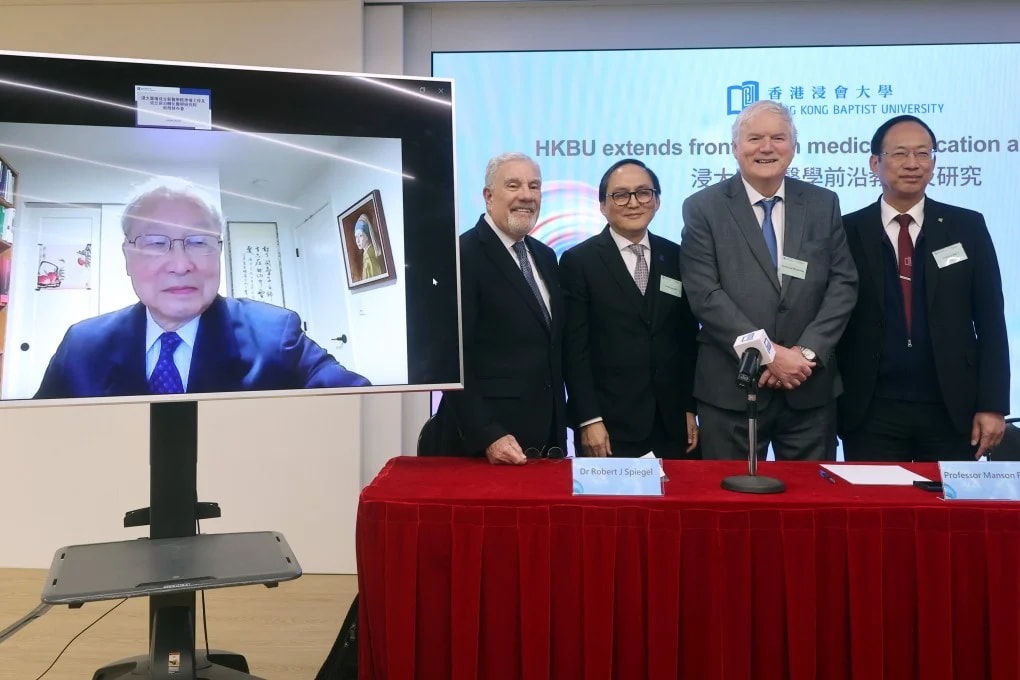
 i_need_contribute
i_need_contribute

Students at a proposed medical school at Hong Kong’s Baptist University will have some exposure to traditional Chinese medicine in their studies, while the institution aims to admit its first cohort of 50 to 60 next year at the earliest.
The university said on Monday that it had completed a draft of its proposal for Hong Kong’s third medical school ahead of the March 17 submission deadline which included 10 key parameters listed earlier by a government task group.
“We consider ourselves to be quite competitive in those 10 key parameters,” university president Professor Alexander Wai Ping-kong said. “We are confident.”
He said the proposal would be submitted to the government on March 17.
The task group overseeing the establishment of the new medical school was formed in October after Chief Executive John Lee Ka-chiu threw his support behind the idea in his policy address. The group came up with 10 key parameters to consider a proposal, including innovative strategic positioning, staffing and curriculum.
Baptist University, University of Science and Technology and Polytechnic University have all publicly indicated they wish to run a medical school.
Wai is also the convenor of his university’s preparatory committee for the new medical school. He said students taking a proposed four-year programme would learn Western medicine but also be exposed to traditional Chinese medicine, which the university had been offering as a degree course since 1998.
“The key point is to let students register with the Hong Kong Medical Council,” Wai said. “Graduates would not be targeted for the Chinese medicine examinations … but they would have enough exposure to Chinese medicine.”
He said this could help pave the way for interested students to pursue further studies in Chinese medicine after graduating.
Professor Manson Fok, a co-chairman of the committee, said the proposed medical school aimed to recruit 50 to 60 students at first to allow a smaller cohort for teaching.
While the task group was expected to finish assessing the proposals and make recommendations by the end of this year, Fok said the first batch of medical students could be recruited next year.
“We hope to start recruiting the first batch of students in August or September next year,” he said.
Fok said students would learn in an “interactive” way but stopped short of revealing more details.
Fok, currently the medical dean of Macau University of Science and Technology, said not all teaching of the proposed programme would be done locally, and facilities in the Greater Bay Area would be utilised.
Baptist University earlier announced a partnership with a hospital under Sun Yat-sen University in Guangzhou as well as its division in Nansha for the medical school plan.
The private Baptist Hospital in Kowloon Tong would also be one of the teaching facilities for the university’s medical students.
Fok said more than 100 doctors from the private sector had agreed to help with the teaching for the programme.
While the government had earlier hinted that funding to universities could be cut amid a near HK$100 billion deficit, Wai expressed confidence in the authorities’ support.
“The government did not say it is going to stop all funding in universities,” Wai said. “Education is an investment, so the government has to put in money.”
Baptist University’s school plan has been backed by some heavyweights, including Michael Houghton, who won a Nobel Prize in 2020 with two other scientists for their discovery of the hepatitis C virus, and Professor Lee Sum-ping, a former medical dean of the University of Hong Kong.
The university also announced on Monday that it will set up a Frontier Translational Medical Research Institute, involving studies ranging from diagnostics to vaccine development.